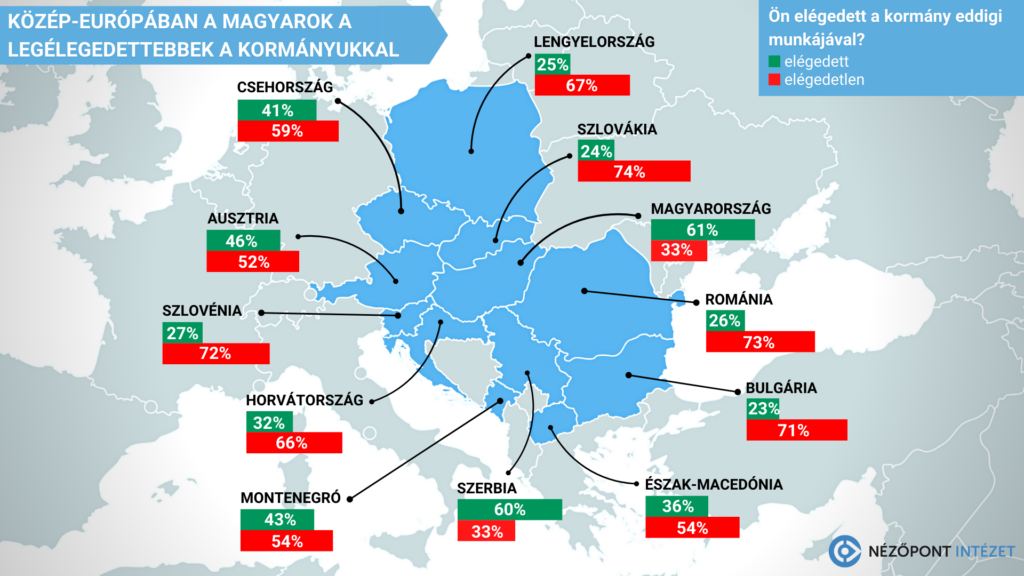61 percent in Hungary and 60 percent in Serbia are those who are most satisfied with their government's performance. This stability is by no means self-evident. For example, 67 percent of Poles are dissatisfied with the work of the Morawiecki government, so they cannot pursue a pragmatic policy that his opposition would immediately use against him.
Satisfaction with government work is the highest in Hungary and Serbia, according to the Central European research carried out in May-June by the Nézőpont Institute, examining twelve countries.
The proportion of those who are most satisfied with the performance of their government is 61 percent in Hungary, and 60 percent in Serbia, while the proportion of those who are dissatisfied was 33 percent, according to Nézőpont's research.
The institute reminded: elections were held in both countries on April 3. Fidesz-KDNP won a historic victory, and Hungarians' satisfaction with the government seems to be crisis-proof even with the new mandate. In the presidential and parliamentary elections held on the same day in Serbia, the incumbent president, Aleksandar Vucic, and the ruling Serbian Progressive Party also won. Even greater satisfaction than the degree of election victories proves that political stability is a value, pointed out Nezőpont.
However, the examples of other countries show that this stability is by no means self-evident.
In Austria, there are already a small but majority of dissatisfied people: 46 percent of Austrians are satisfied, while 52 percent are dissatisfied with the performance of their government. The public discourse on the energy shortage and the scandals of Chancellor Kurz's downfall are probably still having an effect.
In Montenegro, the satisfaction index of the government is similar to that of Austria, with 43 percent satisfied and 54 percent dissatisfied. The Czech Republic also belongs to the same circle, the camp showing satisfaction of around forty percent.
Only a quarter of Poles, 25 percent, were satisfied and two-thirds (67 percent) were dissatisfied with the work of the Morawiecki government. This explains the fact that among the traditionally anti-Russian Poles, the Polish government cannot pursue a pragmatic policy that its opposition would immediately exploit against it. Nearly a quarter of Slovenians were also satisfied and nearly three quarters were dissatisfied with the Jansa government, which was replaced by the new Golob government at the time of the data collection. Romania was among the most dissatisfied countries, where only 26 percent of the population expressed satisfaction with the work of its government, but even this result was surpassed by the region's leader, Slovakia, where only 24 percent were satisfied, the Viewpoint Institute informed.
Source and photo: View Point Institute













